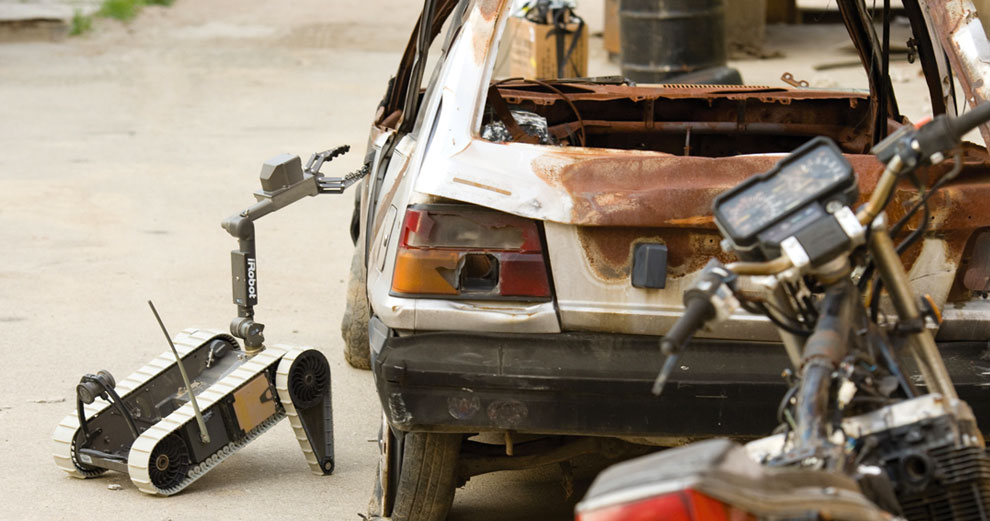Detroit had RoboCop while Pittsburgh had actual robots. Guess which erstwhile industrial giant remade itself in post-manufacturing America and which one fell into complete disrepair? From “The Robots That Saved Pittsburgh,” by Glenn Thrush at Politico:
“‘Roboburgh,’ the boosterish moniker conferred on the city by the Wall Street Journal in 1999 and cited endlessly in Pittsburgh’s marketing materials ever since, may have been premature back then, but it isn’t now: Pittsburgh, after decades of trying to remake itself, today really does have a new economy, rooted in the city’s rapidly growing robotic, artificial intelligence, health technology, advanced manufacturing and software industries. It’s growing in population for the first time since the 1950s, and now features regularly in lists like ‘the Hottest Cities of the Future’ and ‘Best Cities for Working Mothers.’ ‘The city is sort of in a sweet spot,’ says Sanjiv Singh, a [Red] Whittaker acolyte at Carnegie Mellon who is working on the first-of-its-kind pilotless medical evacuation helicopter for the Marines. ‘It has the critical mass of talent you need, it’s still pretty affordable and it has corporate memory—the people here still remember when the place was an industrial powerhouse.’
Improbably for a blue-collar town that seemed headed for the scrap heap when its steel industry collapsed, Pittsburgh has developed into one of the country’s most vibrant tech centers, a hotbed of innovation that can no longer be ignored by the industry’s titans. Carnegie Mellon is Google’s biggest rival in the race to build a driverless car, partnering with GM to build a robot Cadillac that has been humanlessly tooling around Route 19, just outside city limits. In 2011, Google opened a posh, 40,000-square-foot office in an old Nabisco factory in the city’s East Liberty neighborhood, ramping up last year to 350 people, with more on the way. Bill Gates and other Silicon Valley moguls have invested millions of dollars in Aquion Energy, a start-up spun out of CMU that is developing next-generation batteries and producing them in nearby Westermoreland County, not China. Apple, RAND and Intel also have outposts in town and Disney, which has tapped the university’s computer and robotics talent for years, is partnering with the school to improve cinematic graphics and to develop hominid robots that can gently hand objects to people by predicting the movement around them. All told, Pittsburgh’s tech and education sectors now account for some 80 percent of the high-wage jobs in the city, and robots are just the most visible piece of this miraculous turnaround of a city on the brink.”
Tags: Glenn Thrush, Red Whittaker, Sanjiv Singh

